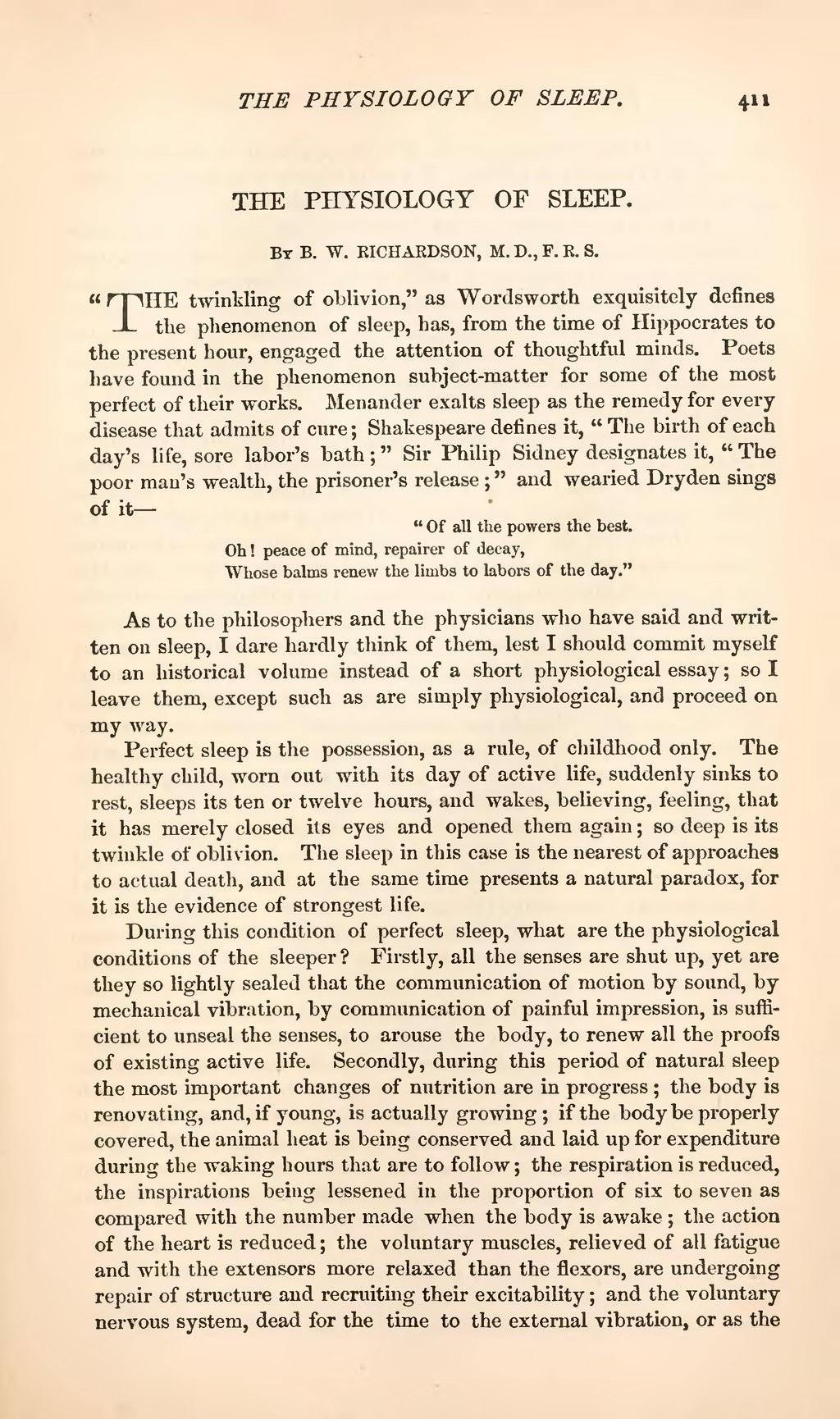| THE PHYSIOLOGY OF SLEEP. |
By B. W. RICHARDSON, M. D., F. R. S.
"THE twinkling of oblivion," as Wordsworth exquisitely defines the phenomenon of sleep, has, from the time of Hippocrates to the present hour, engaged the attention of thoughtful minds. Poets have found in the phenomenon subject-matter for some of the most perfect of their works. Menander exalts sleep as the remedy for every disease that admits of cure; Shakespeare defines it, "The birth of each day's life, sore labor's bath;" Sir Philip Sidney designates it, "The poor man's wealth, the prisoner's release;" and wearied Dryden sings of it—
"Of all the powers the best.
Oh! peace of mind, repairer of decay,
Whose balms renew the limbs to labors of the day."
As to the philosophers and the physicians who have said and written on sleep, I dare hardly think of them, lest I should commit myself to an historical volume instead of a short physiological essay; so I leave them, except such as are simply physiological, and proceed on my way.
Perfect sleep is the possession, as a rule, of childhood only. The healthy child, worn out with its day of active life, suddenly sinks to rest, sleeps its ten or twelve hours, and wakes, believing, feeling, that it has merely closed its eyes and opened them again; so deep is its twinkle of oblivion. The sleep in this case is the nearest of approaches to actual death, and at the same time presents a natural paradox, for it is the evidence of strongest life.
During this condition of perfect sleep, what are the physiological conditions of the sleeper? Firstly, all the senses are shut up, yet are they so lightly sealed that the communication of motion by sound, by mechanical vibration, by communication of painful impression, is sufficient to unseal the senses, to arouse the body, to renew all the proofs of existing active life. Secondly, during this period of natural sleep the most important changes of nutrition are in progress; the body is renovating, and, if young, is actually growing; if the body be properly covered, the animal heat is being conserved and laid up for expenditure during the waking hours that are to follow; the respiration is reduced, the inspirations being lessened in the proportion of six to seven as compared with the number made when the body is awake; the action of the heart is reduced; the voluntary muscles, relieved of all fatigue and with the extensors more relaxed than the flexors, are undergoing repair of structure and recruiting their excitability; and the voluntary nervous system, dead for the time to the external vibration, or as the

